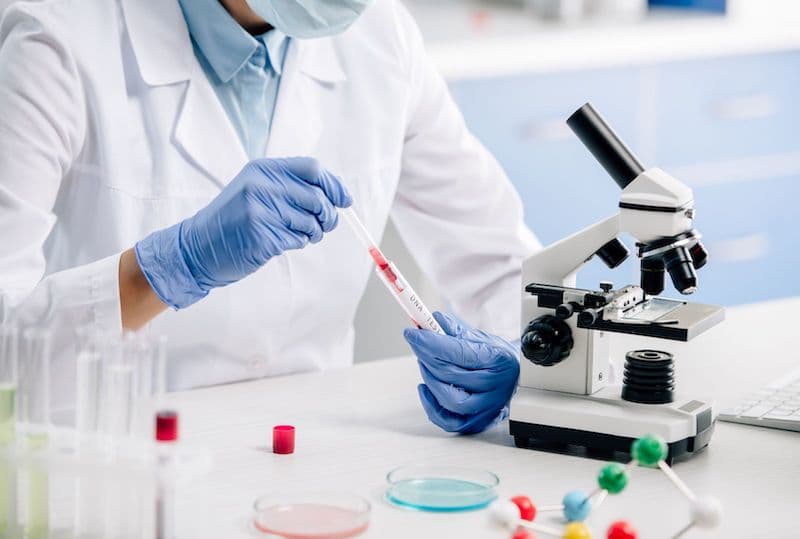Sperm Health and Genetics
Sperm health is crucial in male fertility and the ability to conceive a child. Various genetic factors significantly affect sperm production, count, motility, and overall quality. Spermatogenesis, responsible for dividing and differentiating germ cells in the testes, produces sperm cells. Various genes control the development and maturation of these cells.
Several genes are involved in sperm production, including those responsible for the formation of sperm cells, the regulation of hormone production, and the maintenance of testicular function. For example, the SYCP3 gene is essential for forming synaptonemal complexes, critical for pairing and recombining chromosomes during meiosis. Mutations in the SYCP3 gene can lead to abnormal sperm production and infertility.

Genetic Factors that Affect Sperm Count and Motility
Genetic factors can have a notable influence on the quantity and movement of sperm. Sperm count refers to the amount of sperm cells in a specific sample, while motility refers to how efficiently the sperm cells move. Both factors play a crucial role in achieving successful fertilization.
Several genetic factors can affect sperm count and motility. For example, mutations in the CFTR gene, responsible for cystic fibrosis, can lead to obstructive azoospermia. This condition is indicated by the absence of sperm in the ejaculate due to blockages in the reproductive tract. Similarly, mutations in the DNAH1 gene, which is involved in the structure and function of sperm tails, can result in immotile cilia syndrome, a condition characterized by the inability of sperm cells to move correctly.
How Genetic Mutations Can Impact Sperm Health
Mutations in the DNA sequence can significantly affect the health of sperm, as they can modify the structure or function of genes. These mutations can either be passed down from parents or arise spontaneously during the production of sperm.
Several genetic mutations can affect sperm health. For example, mutations in the CATSPER1 gene, which regulates calcium channels in sperm cells, can lead to male infertility due to poor sperm motility. Similarly, mutations in the NR5A1 gene, which is responsible for the development and function of the testes, can result in disorders of sex development and infertility.
The Link Between Lifestyle and Sperm Health
Unhealthy lifestyle choices, including smoking, excessive alcohol consumption, drug use, and a sedentary lifestyle, can harm sperm health. These factors can lead to decreased sperm count, reduced motility, and lower overall quality.
Smoking, for example, has been shown to reduce sperm count and motility and increase the presence of abnormal sperm cells. Excessive alcohol consumption can also impair sperm production and function. Drug use, particularly anabolic steroids and marijuana, can harm sperm health.
A sedentary lifestyle and obesity also result in poor sperm quality. Lack of physical activity and a low-quality diet can lead to hormonal imbalances and oxidative stress, negatively impacting sperm production and function.
Genetic Testing for Male Infertility
Genetic testing is crucial in diagnosing male infertility and identifying the underlying genetic factors contributing to the condition. Genetic testing can help determine if any genetic mutations or abnormalities may affect sperm health.
Several genetic tests are available for male infertility, including karyotyping, Y chromosome microdeletion analysis, and DNA sequencing. Karyotyping involves examining the structure and number of chromosomes in a person's cells. Y chromosome microdeletion analysis looks for specific deletions in the Y chromosome that can cause male infertility. DNA sequencing involves analyzing the DNA sequence of particular genes to identify any mutations or abnormalities.
Genetic testing offers valuable information about the genetic factors contributing to male infertility. This information can provide beneficial insights for making informed decisions about treatment options and can also help make decisions related to family planning.
The Future of Genetic Research in Sperm Health
Genetic research in sperm health is an active and evolving field. Scientists continually uncover new genes and genetic factors that play a role in sperm production, count, motility, and overall quality. This research is essential for understanding the underlying causes of male infertility and developing new treatments and interventions.
Advancements in genetic technologies, such as next-generation sequencing and gene editing techniques like CRISPR-Cas9, are revolutionizing the field of reproductive genetics. These technologies allow researchers to study the genetic basis of male infertility in more detail and develop targeted therapies to address specific genetic mutations or abnormalities.
How Epigenetics Affects Sperm Health
Epigenetics refers to changes in gene expression that do not involve alterations in the underlying DNA sequence. Various factors, including environmental exposures, lifestyle choices, and aging, can influence epigenetic modifications.
Epigenetic factors can have a significant impact on sperm health. For example, studies have shown that exposure to heavy metals, pesticides, and other environmental toxins can lead to epigenetic changes in sperm cells, affecting sperm count, motility, and overall quality.
Similarly, lifestyle choices such as diet and exercise can influence epigenetic modifications in sperm cells. A healthy diet rich in nutrients and antioxidants can promote positive epigenetic changes, while a poor diet high in saturated fats and processed foods can lead to adverse epigenetic modifications.
The Importance of Genetic Counseling for Couples with Fertility Issues
Genetic counseling is an essential component of managing couples with fertility issues. It involves the assessment of a couple's genetic history, identifying any potential genetic risks, and providing information and support regarding reproductive options.
Genetic counseling can help couples understand the impact of genetics on their fertility and make informed decisions about family planning. It can also provide valuable information about the likelihood of passing on genetic conditions to future children and the available options for genetic testing and assisted reproductive technologies.
- Protecting Your Health: Choosing A Sperm Bank Over Natural Insemination
- Hatching a Plan: Learning The Basics About Assisted Hatching in IVF
- Navigating GYN Surgery Before Artificial Insemination
- PGT Testing and Its Role in IVF Treatment
- The Ultimate Guide To Where You Can Donate Sperm In All 50 States

